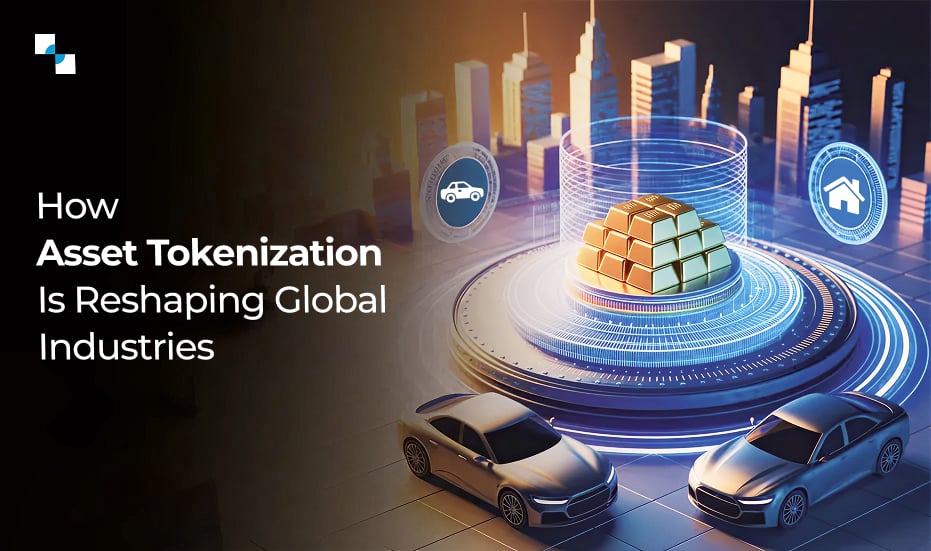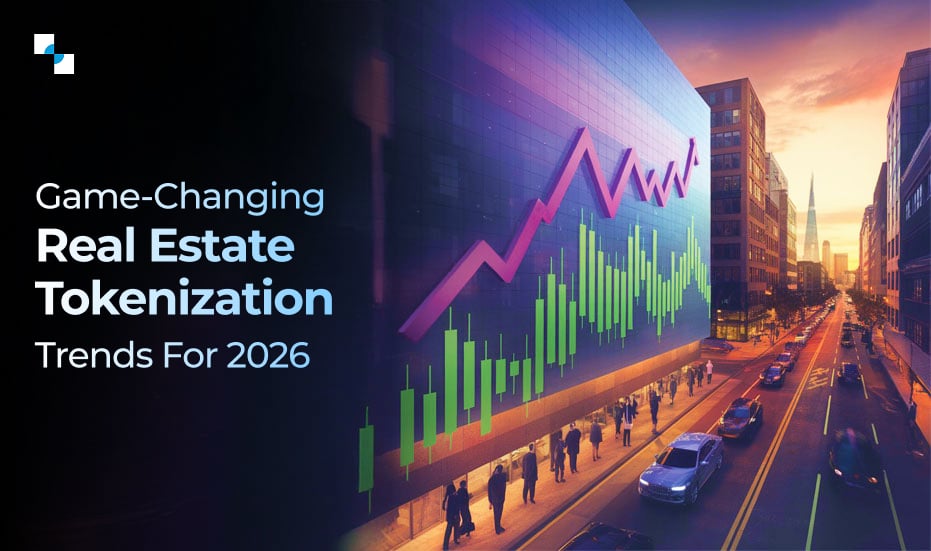Index
1. Introduction to Tokenized Funds
Tokenized funds provide a lucrative investment opportunity for blockchain enthusiasts. Now, it is possible to create digital tokens to symbolize mutual funds, private equity, and venture capital funds, and you can claim ownership of them indisputably. This innovation increases accessibility, liquidity, and efficiency; there’s comparatively easier access for investors to a broader variety of asset classes. Therefore, it becomes important for both investors and fund managers to understand the tokenized fund ecosystem at a time when the world is transitioning from financial assets to digital assets.
Key Components of the Tokenized Fund Ecosystem
The tokenized fund ecosystem will consist of some of the significant constituents:
- Blockchain Technology: Tokenization basically depends on blockchain technology that provides a decentralized and safe form of recording ownership and history of transactions. Transparency about fraud is reduced, and trust increases between participants.
- Smart contracts: Smart contracts automate processes of tokenized funds regarding issues like the distribution of dividends and compliance checking without the need of intermediaries required for such transactions. Thus, it increases efficiency rather than just cost-cutting.
- Digital Wallets: Digital Wallets. This is a tool for securing investor’s tokens by keeping them safe. They allow fast, easy transactions and give the owner full control over their assets.
- Tokenization platforms: These platforms would help create and manage a tokenized fund by providing functions such as regulatory compliance, asset management, and trading capabilities.
This is the aspect of regulation frameworks that forms an important task in the evolution of the tokenized fund system. The security of investments and more so, the assurance of forming the confidence of market gurus, is a guarantee if compliance with local laws is incorporated.
Benefits of Tokenized Funds
Tokenized funds offer full benefits as opposed to traditional investment vehicles:
- Liquidity: Tokenization allows fractional ownership of assets; hence, investors can purchase and sell smaller portions of a fund. Such an increase in liquidity is beneficial for typically illiquid assets, such as real estate or private equity.
- Reduced Barriers of Entry: It allows fractional investments in tokenized funds, effectively reducing the minimum requirements of investment and giving it a more universal entry.
- Real-time Transparency: Blockchain technology ensures that every transaction is recorded in an immutable ledger, bringing about transparency into who actually owns the funds and their performance.
- Low-cost Operations: Smart contracts automate the operations involved in running a fund, hence automatically reducing some costs of running the fund; investors can enjoy cheaper services from the fund managers.
- Inclusivity: Tokenized funds are provided to global investors, eliminating regional barriers normally used as markers to exclude potential investors in traditional investment funds.
Tokenization Process for Funds
Tokenizing a fund essentially involves some of these important stages:
- Selection of Asset: Fund managers identify assets fitting the criteria of value and liquidity potential.
- Legal Structuring: A powerful legal framework establishes that tokens represent valid claims toward the underlying assets. Such a process determines the rights based on the tokens and determines an appropriate kind of tokenization structure (e.g., Special Purpose Vehicle or direct asset tokenization).
- Token Creation: Once the legal framework is in place, digital tokens are created on a blockchain to signify ownership of the fund.
- Distribution and Trading: Tokens are distributed among investors via initial offerings or secondary markets and can be traded on other platforms.
- Ongoing Management: Fund managers maintain oversight of the tokenized assets, ensuring that all regulations are followed, and investor relations are managed through automated systems.
Types of Tokenized Funds
Several types of tokenized funds are designed for different investment strategies:
- Real Estate Funds: When we speak about the tokenization of real estate, an investor is able to buy a share of interest in various properties without having to commit large upfront capital sums. This model allows for fractional ownership and thus increases liquidity.
- Private Equity Funds: Tokenized private equity funds democratize access to what are previously exclusive investments and even the smallest investors get opportunities to gain high growth potential.
- Venture Capital Funds: Tokenization enables venture capital firms to raise capital more efficiently, while investors can now gain access to previously immobile or illiquid capacity.
- Hedge Funds: Tokenized hedge funds enable better transparency of trading strategies and performance metrics and reduce management fees through automation.
- Index Funds: These funds could be tokenized for diversified exposure to many assets while maintaining low fees because of automated management processes.
Regulatory Considerations for Tokenized Funds
As the trend of tokenization is becoming highly popular, regulatory considerations come into play:
- Compliance requirements: Fund managers have to cross a number of jurisdictions’ complex regulatory frameworks. The first essentiality is to remain compliant with securities laws, for the protection of investors and for market integrity.
- Licensing and Registration: In certain jurisdictions, the tokenized funds must have some licenses or registrations before they are issued to the investors.
- Investor protection: Regulators are trying to protect investors from fraud as well as malpractice through the proper rules on disclosure, reporting, and governance of the tokenized fund.
- Dynamic Regulations: The regulations keep changing so rapidly in the case of tokenization that fund managers must be updated on the changes.

Challenges in the Tokenized Fund Ecosystem
Despite the very promising ecosystem that this new tokenized fund can present, there are various challenges:
- Technical Complexity: Blockchain technology is comparatively a new concept for many, and therefore demands some technical knowledge, which probably a traditional fund manager does not possess.
- Lack of Awareness: It will depend upon investor education and the shift in skepticism towards tokenized funds away from digital assets.
- Regulatory Hurdles: The system is quite complicated in terms of its regulatory framework, which might be a great challenge in seeking to tokenize offerings for fund managers.
- Security Risks: Although blockchain technology is inherently secure, smart contracts and digital wallets are risk-prone in themselves and can put investors at risk if control is not exercised over them properly.
Future Trends in Tokenized Funds
A very bright future awaits tokenized funds, considering the following trends:
- Increased Institutional Participation: As institutional investors become more comfortable with this nascent asset class, we will expect more participation in tokenized funds and increased legitimacy within the space.
- Enhanced Interoperability: Interoperability will likely be the focus area to ensure seamless transactions across different ecosystems.
- Integration with DeFi Solutions: The tokenized funds and decentralized finance may unlock a new way of liquidity provision and yield generation through the mechanism of automation.
- Expansion of Asset Classes: As more is known about the benefits of tokenization, this is envisioned to be spread to various asset classes beyond traditional investments–art or collectibles, for example, will be channeled into this type of tokenized security.
- Clarity in regulation: As the regulatory framework evolves further around digital assets, clearer guidelines will infuse investor confidence and catalyze the popularization of tokenized funds.
Conclusion
The tokenized fund ecosystem represents a transformative shift in asset management, merging traditional finance with innovative blockchain technology. As this landscape evolves, our company, Antier, is all set to play a pivotal role in facilitating this transition through our advanced asset tokenization platform development services. We empower businesses to tokenize various assets swiftly and efficiently, enabling them to unlock new avenues for liquidity and transparency. Antier not only accelerates the time-to-market for tokenization projects but also enhances the overall investment experience. Let’s get connected!







